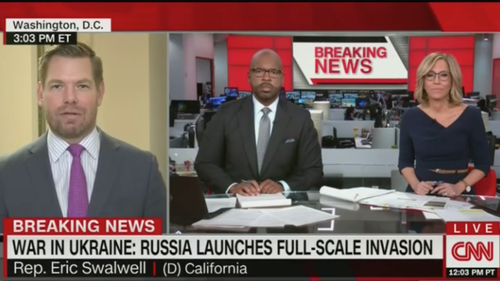For the purposes of this appeal, the defendants say that they accept as true the government’s allegations as contained in the indictment. Those allegations outline the following version of events.
On April 2, 2018, Judge Joseph presided over the arraignment of an undocumented immigrant referred to by the parties as A.S. {[which stands for ‘alien subject’}. A.S. had been fingerprinted upon his arrest by police in Newton, Massachusetts. An ensuing check of a national law enforcement database indicated that he had previously been deported from the United States and was prohibited from reentering the country. Federal Immigration and Customs Enforcement (ICE) issued an immigration detainer and warrant of removal for A.S. ICE sent these documents to the Newton Police, requesting that state officials notify ICE before releasing A.S. and, if necessary, detain him for up to 48 hours to allow ICE to take custody of him. These documents were provided to the Newton District Court Clerk’s Office, probation, the assistant district attorney, and defense counsel for A.S.
On April 2, a plainclothes ICE officer entered the Newton District Court to take A.S. into federal custody should he be released from state custody. The ICE officer originally sat in Judge Joseph’s courtroom, but Judge Joseph later directed the clerk to tell the officer to leave. The government alleges that this directive violated state policy governing the treatment of ICE officials in Massachusetts courthouses. The clerk did as instructed, and also told the ICE officer that if released, A.S. would exit the courtroom into the courthouse lobby.
Ultimately, however, that is not what transpired. A.S. was released from state custody, but he exited the courthouse without passing through the lobby where the ICE official waited. The government alleges that Judge Joseph purposefully helped A.S. evade ICE by concocting a ruse under which A.S. would go downstairs to lockup—ostensibly to retrieve some property and speak with his counsel via an interpreter—then exit the courthouse through a rear sally-port exit. According to the government, Judge Joseph directed the clerk to go off the record while she devised this plan with counsel. At this point, the courtroom recorder was turned off for nearly a minute, allegedly in violation of Massachusetts court rules. After the recorder was turned back on and the alleged plan was set in motion, Deputy MacGregor used his access card to swipe A.S. out the back door of the courthouse.
The United States Attorney for the District of Massachusetts apparently decided that the foregoing events were best addressed with a criminal indictment rather than a shot-over- the-bow visit to the courthouse. The indictment charged Judge Joseph and Deputy MacGregor with conspiring to obstruct justice in violation of 18 U.S.C. § 1512(c)(2) and (k); obstructing justice in violation of 18 U.S.C. §§ 2 and 1512(c)(2); and obstructing a federal proceeding in violation of 18 U.S.C. §§ 2 and 1505. Both defendants moved to dismiss these charges. Judge Joseph argued that the doctrine of judicial immunity shields her from criminal prosecution for actions taken in her judicial capacity. Both Judge Joseph and Deputy MacGregor also argued that their prosecution is barred by principles of federalism and due process and by Tenth Amendment precedent holding that the federal government may not “commandeer” state officials to execute federal policies. Finally, both defendants argued that the government had not alleged facts sufficient to support the charges….
As a general rule, federal courts of appeal may exercise appellate jurisdiction only over final decisions. “Adherence to this rule of finality has been particularly stringent in criminal prosecutions because ‘the delays and disruptions attendant upon intermediate appeal,’ which the rule is designed to avoid, ‘are especially inimical to the effective and fair administration of the criminal law.'”
There are, however, several exceptions to this general rule. As relevant here, those exceptions include the so-called collateral order doctrine. That doctrine permits an appeals court to review orders that, without ending the litigation below, “finally determine claims of right separate from, and collateral to, rights asserted in the action, too important to be denied review and too independent of the cause itself to require that appellate jurisdiction be deferred until the whole case is adjudicated.”
The collateral order doctrine is a narrow exception, which the Supreme Court “ha[s] interpreted … ‘with the utmost strictness’ in criminal cases.” To qualify as a collateral order, the order at issue “must (1) ‘conclusively determine the disputed question,’ (2) ‘resolve an important issue completely separate from the merits of the action,’ and (3) ‘be effectively unreviewable on appeal from a final judgment.'”
For our purposes, we need only train our attention on the third requirement—that the order in question cannot effectively be reviewed at the end of the case. The Supreme Court has to date identified four types of orders that satisfy this requirement and qualify as collateral orders in criminal proceedings: orders denying motions to reduce bail; orders denying motions to dismiss an indictment on double jeopardy grounds; orders denying a motion to dismiss an indictment under the Constitution’s Speech or Debate Clause; and orders allowing involuntary medication to render a defendant competent to stand trial.
In each of these instances, [the] third requirement was satisfied because the protected right (freedom from excessive bail, a guarantee not to stand trial, and protection against forced medication) would have been effectively lost if not vindicated before final judgment entered. Consequently, a post-judgment appeal would come too late.
So in this case, we ask whether either defendant asserts a right that would effectively be lost by proceeding to trial….
Judge Joseph’s primary argument for challenging the indictment rests on her claim that, as a state district court judge, she is immune from federal prosecution for the conduct alleged in the indictment. This immunity, she argues, protects her against not just conviction, but also against prosecution. Thus, she reasons, she will lose an important part of that protection if her immunity defense is not vindicated until after trial.
The flaw in this argument is that judicial immunity—even assuming that it applies in this criminal case—does not provide a right not to be tried that can serve as a basis for interlocutory review. To explain why this is so, we begin with a rule of construction applicable when a criminal defendant asserts a right not to stand trial…. [S]uch a
right must “rest[] upon an explicit statutory or constitutional guarantee that trial will not occur—as in the Double Jeopardy Clause (‘nor shall any person be subject for the same offence to be twice put in jeopardy of life or limb’), or the Speech or Debate Clause (‘[F]or any Speech or Debate in either House, [the Senators and Representatives] shall not be questioned in any other Place’).” In adopting this rule for interlocutory appeals in criminal cases, the Court recognized that, absent such a strict construction, very many legal defenses might be said to confer a right not to be tried…. “[A]ny
legal rule can be said to give rise to a ‘right not to be tried’ if failure to observe it requires the trial court to dismiss the indictment or terminate the trial.” …. So by limiting interlocutory appeals to those “rights not to be tried” that are explicitly set forth in a statute or the Constitution, the Court avoided construing an exception in a manner that swallowed the rule. In this regard, the requirement that the defense rest on an explicit statutory or constitutional grant of immunity from trial aligns with the Supreme Court’s practice of “interpret[ing] the collateral order exception ‘with the utmost strictness’ in criminal cases.” …
Judge Joseph … invokes the Supreme Court’s holding in Mitchell v. Forsyth that “the denial of a substantial claim of absolute immunity is an order appealable before final judgment.” But Mitchell was a civil case to which the more stringent rules applicable to criminal proceedings did not apply. Midland Asphalt, decided four years after Mitchell, governs this criminal case. So Judge Joseph cannot obtain interlocutory review of her judicial immunity defense unless she can show that her claimed right not to be tried is explicitly grounded in a statute or the Constitution. Because she concededly can point to no such grounding, and relies instead solely on the common law, she necessarily fails to satisfy Midland Asphalt‘s strictures.
The bottom line, then, is that we have no jurisdiction to review the district court’s decision denying Judge Joseph’s motion to dismiss based on her asserted common-law defense of judicial immunity….
The defendants’ claim that the Tenth Amendment to the United States Constitution bars their prosecution fares no better as a support for interlocutory review. The Tenth Amendment provides: “The powers not delegated to the United States by the Constitution, nor prohibited by it to the States, are reserved to the States respectively, or to the people.” In past cases, the Supreme Court has interpreted the amendment to bar the federal government from commandeering state executive and legislative officials to implement federal policies.
The defendants claim that their prosecution is a tool of “impermissible commandeering—an attempt to require state officers to help enforce federal immigration law.” … [But t]he indictment does not allege that Judge Joseph and Deputy MacGregor merely declined to enforce federal immigration law. Instead, it alleges that they affirmatively interfered with federal officials’ attempts to enforce federal law. So we are not convinced that the defendants’ Tenth Amendment theory is “completely separate from the merits” of the charges against them. In any event, the defendants’ Tenth Amendment theory does not satisfy Midland Asphalt‘s third prong….
At base, the defendants argue that they had a right to do what they did because federal immigration officials could not have required them to help enforce federal immigration law. But this defense can be asserted at trial, with any loss reviewed on appeal from a final judgment.
True, Judge Joseph and Deputy MacGregor will confront the costs of trial and the very significant anxiety of being defendants in a federal prosecution. Without minimizing those adverse consequences, we must recognize that they are visited on all criminal defendants. So they cannot justify an interlocutory appeal unless we are to allow such appeals of most motions to dismiss in criminal cases.
We also acknowledge the related twist on the commandeering argument emphasized by amici: that this prosecution will chill other judges from refusing to assist federal officials. But the facts alleged here—affirmative acts of deception and violations of several state policies—are largely sui generis. Moreover, every overreaching or overly broad indictment arguably chills others who see themselves as similarly situated to the defendants. So if that chilling were sufficient to justify interlocutory review, very many motions to dismiss of all sorts would be appealable. Such a result would run directly counter to Midland Asphalt‘s insistence that the collateral order exception be strictly interpreted in criminal cases.
For all of these reasons, the pretrial denial of the defendants’ motions to dismiss based on this Tenth Amendment, anti-commandeering defense falls short of satisfying the strict requirements for interlocutory review in a criminal case….
Finally, to the extent that Judge Joseph and Deputy MacGregor merely allege that the indictment fails to state an offense, this theory is not amenable to interlocutory appeal. As the Supreme Court has explained, “an order denying a motion to dismiss an indictment for failure to state an offense … may be reviewed effectively, and, if necessary, corrected if and when a final judgment results.”


